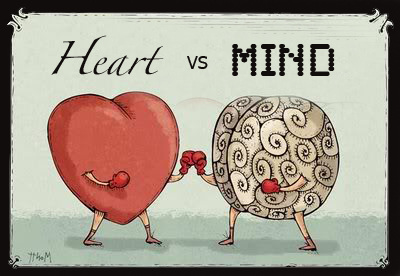|
I had a patient ask me today, "doctor how do we love in a healthy way?" the question perplexed me for a second and put me in a thought. For once, I was short on my words. My response, "be consistant but not too persistent, share and never be unfair, understand and try not demand, and allow yourself to get hurt, but never keep the pain."
0 Comments
Mind:
Venomous lies heard too often, Can you blame me when my heart turns rotten? Poisoning my ears with the words I yearn to hear, Can you blame me when I begin to fear love? Heart: "No, but this time it's different, he means what he says!" Mind: Really? So his actions are true? Funny little girl so naive and blind Don't you understand there is no one of a kind! They're all the same, they spit their game to satisfy their needs, there is no shame. Never ignore a person who loves you, cares for you, and misses you. Because one day, you might wake up from your sleep and realize that you lost the moon while counting the stars.
~unknown Throughout the years, the Five stages of Loss and Grief have been well written about and discussed. In this essay, I will elaborate my personal views that extend on the Bargaining stage of grief. Bargaining is the normal reaction to feelings of helplessness and vulnerability after a death of a loved one that is often associated with the need to regain control. Some common thoughts associated with bargaining can be "if only we had sought medical attention sooner," "If only we had gotten a second opinion from another doctor," "If only I had tried to be a there more".
I believe that the amount someone grieves is directly proportional to the type of relationship the person had towards the deceased. Seems like a basic concept, yet, it is filled with a load of emotional baggage that may be at times hard to gauge and even harder to understand. Often, the person grieving is drowned by a sea of guilt and hopelessness. This is one way our mind deals with coping through loss. This happens because our mind wants to get back to a state of "normalcy" as quickly and efficiently as possible and uses control as its vehicle. When something bad happens, such as dealing with the loss of a loved one, the first thing the mind seeks to find is some form of control. This is usually done through seeking some form of participation in order to fix the situation. But how can someone "fix the situation" when the person is dead? by Cristen Conger
When Enovid, the first birth control pill approved by the U.S. Food and Drug Administration, hit the market in 1960, American women were eager for the option. Previously cleared as a treatment for menstrual disorders in 1957, Enovid was already making the rounds among gynecological practices, with half a million prescriptions doled out ostensibly to regulate periods [source: PBS]. When the pill turned 40 in 2010, an estimated 100 million women around the world were using oral contraceptives, primarily to prevent pregnancies [source: TIME]. Birth control pills prevent pregnancy by inhibiting a woman's ovaries from releasing a mature egg into the fallopian tubes during monthly ovulation [source: Planned Parenthood]. Typically, oral contraceptives combine the hormones estrogen and progestin to maintain a routine menstrual cycle, sans ovulation. In doing so, birth control has granted women greater agency over their bodies and their reproductive systems, allowing them to better manage if and when motherhood happens. As a side effect of reducing the pregnancy risk, the pill also opened the door to greater sexual freedom. random fact:
the reason why your nose gets runny when you cry is because there are little holes in the inner corner of your eye which drains excess tears into your nose. "Listen to others. They may know more than you do—even about yourself." Know thyself. That was Socrates' advice, and it squares with conventional wisdom. "It's a natural tendency to think we know ourselves better than others do," says Washington University in St. Louis assistant professor Simine Vazire.
But a new article by Vazire and her colleague Erika N. Carlson reviews the research and suggests an addendum to the philosopher's edict: Ask a friend. "There are aspects of personality that others know about us that we don't know ourselves, and vice-versa," says Vazire. "To get a complete picture of a personality, you need both perspectives." |
AuthorDr. Saum Yermian, Psy. D. Archives
October 2012
Categories
All
|
Menu:
- Home
- About Me
-
Services Provided
- Personal Growth
- Professional Development
- Career Coaching
- Relationship Coaching
- Addictive Relationships -Brochure
- Interpersonal Relationships & Conflict
- Premarital Counseling -Brochure
- Family Conflict
- Communication Skills
- Anxiety
- Stress Management
- Depression
- Sexuality
- Sex Addiction -Brochure
- Grief & Loss
- Inner Peace
- Achieving Balance
- Contact Me
- FAQ
- Rates & Forms
- Privacy & Policy
- Links & Resources
310.713.6227
[email protected]






 RSS Feed
RSS Feed

